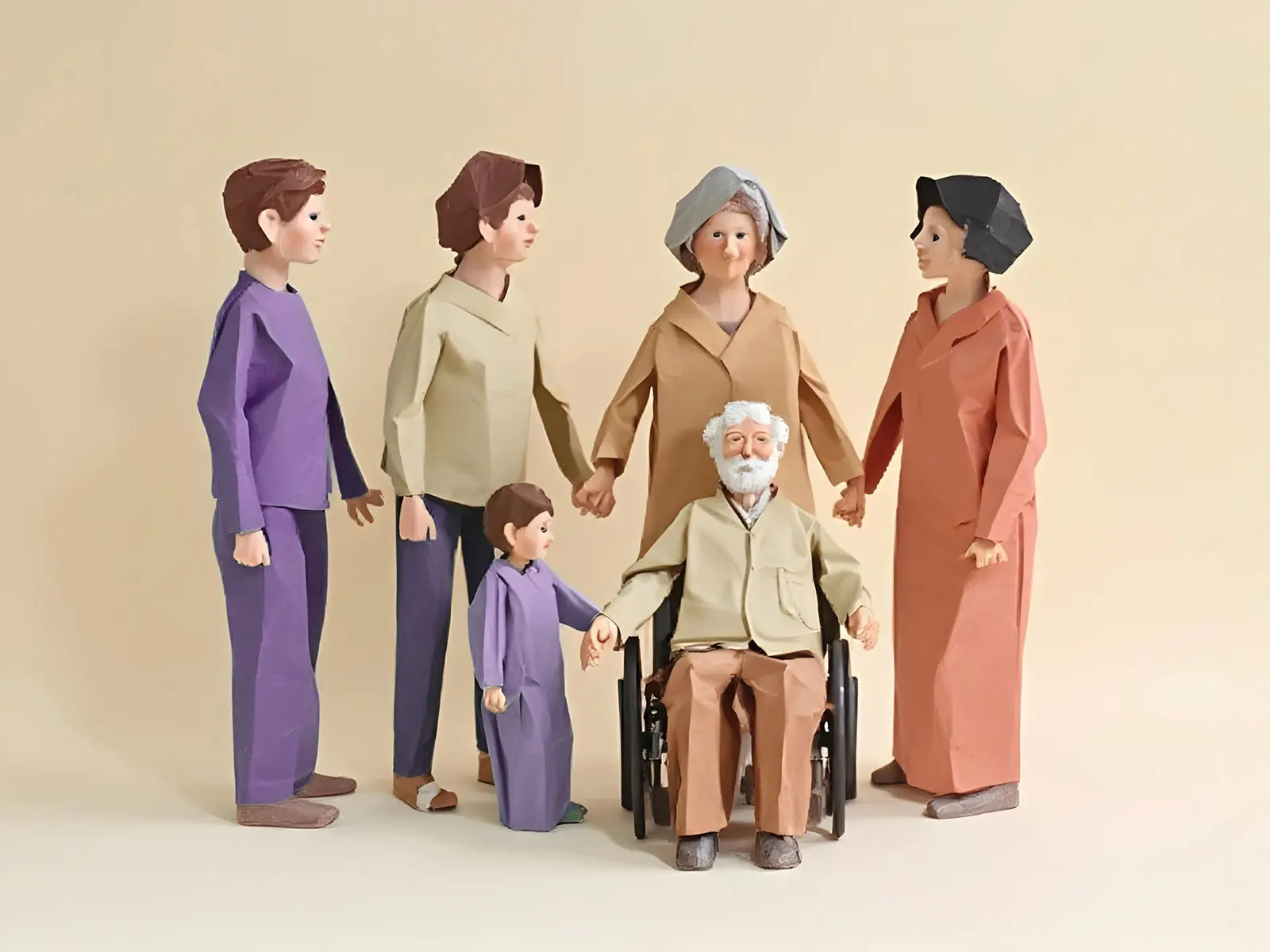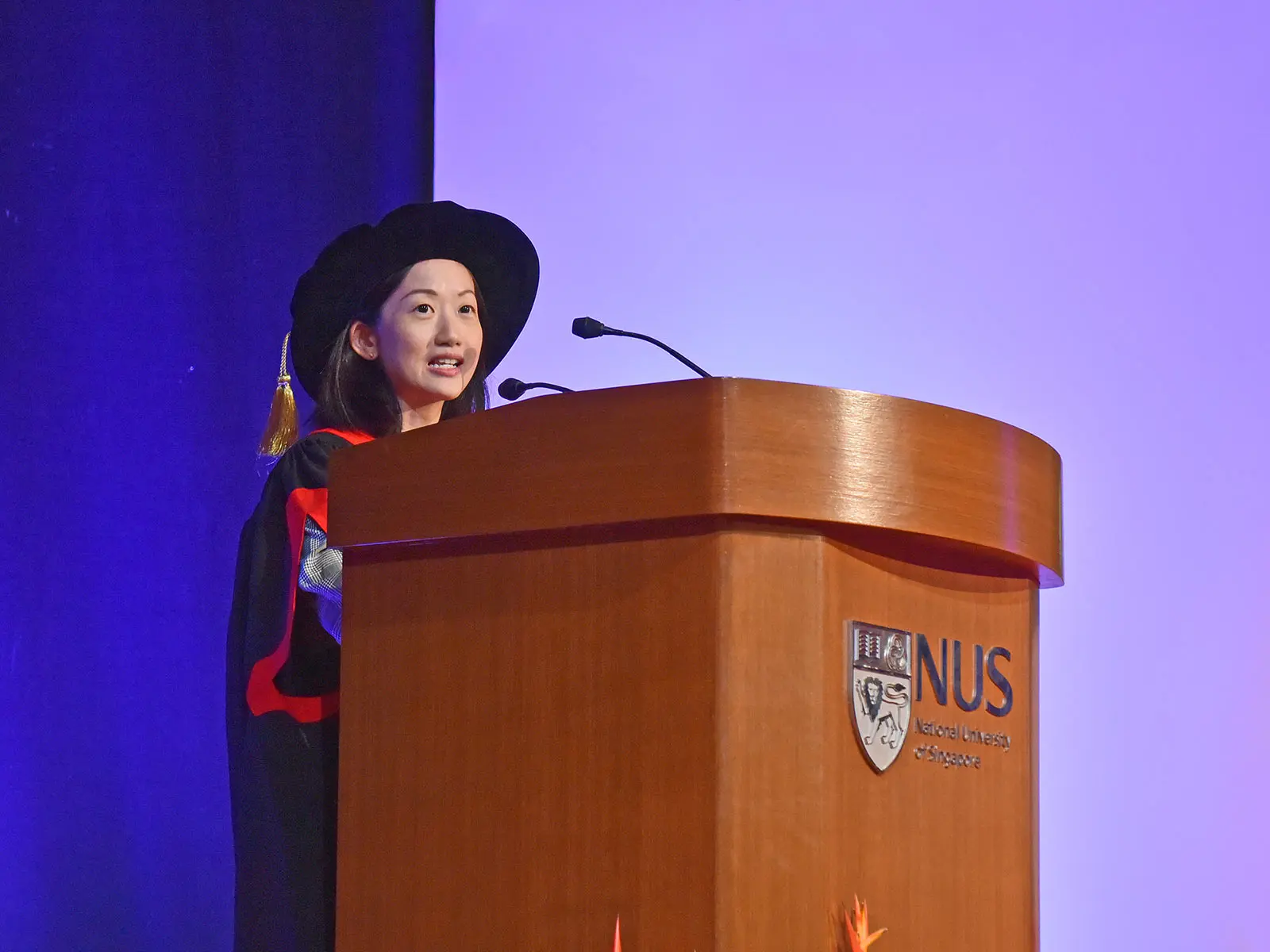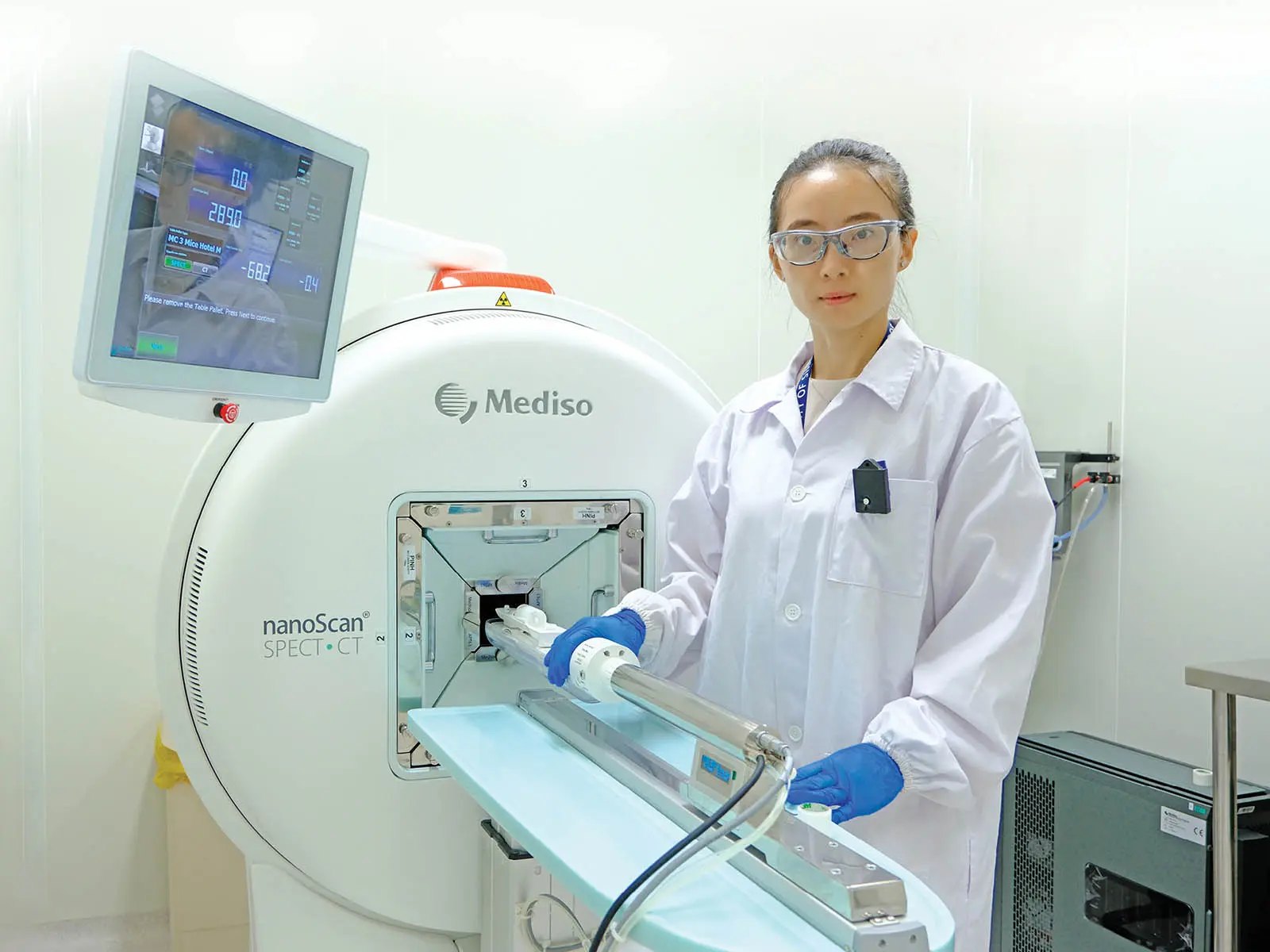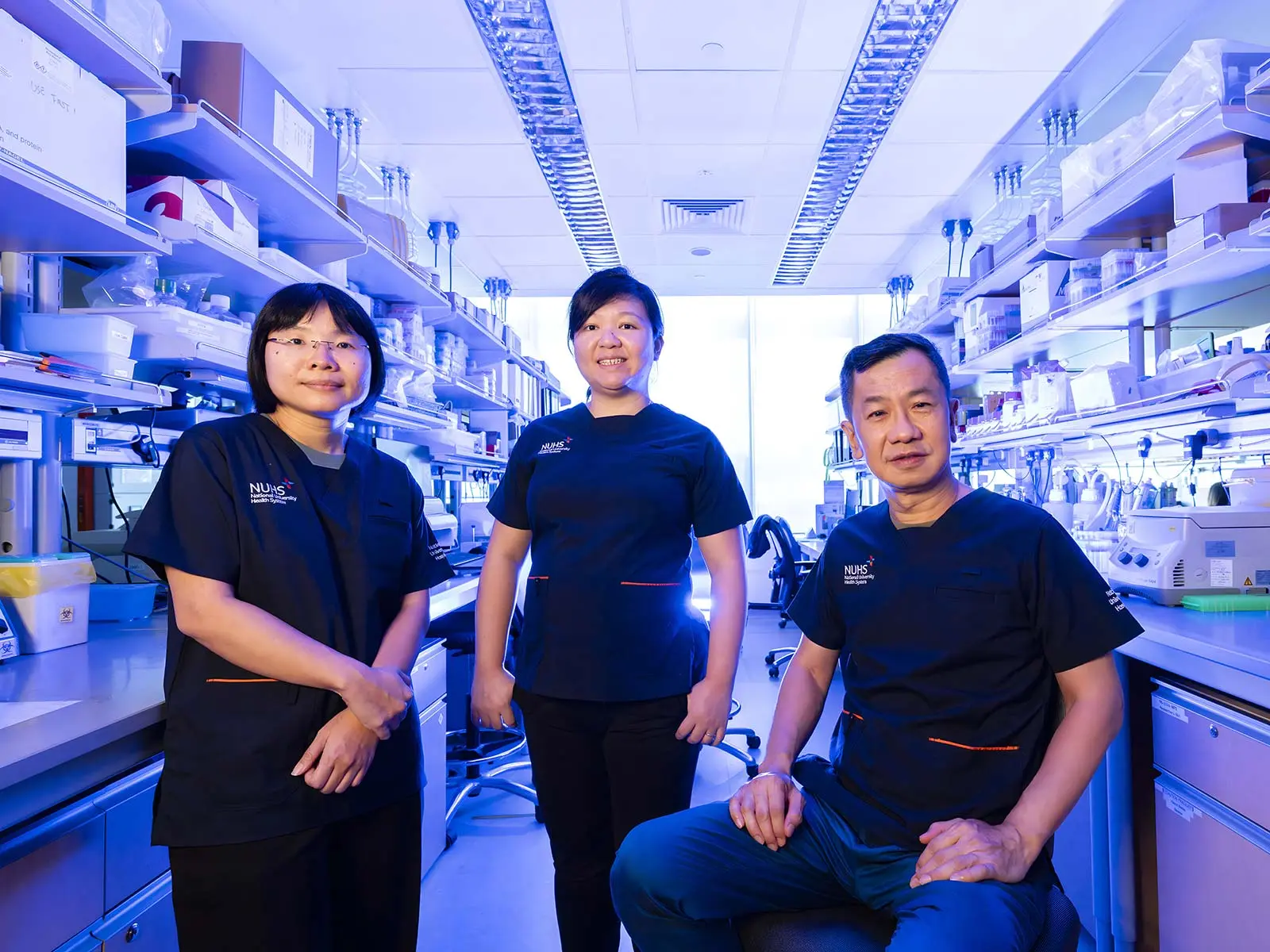
Issue 52
Nov 2024
THE LAST MILE
By Dr Noreen Chan, Senior Consultant, Division of Palliative Medicine, National University Cancer Institute, Singapore

It was a familiar scene—my colleagues and I sitting with a patient’s relatives, about to begin a meeting. This was my first time speaking face-to-face with the family—4 adult children and 2 in-laws—and as was often the case in Palliative care, I was going to have to tell them some very bad news indeed. Judging from the sombre facial expressions, they already had an idea of where we were headed.
After a round of introductions, we began by revisiting the patient’s illness journey—I had met him just 2 days ago, after he had been in hospital for about 3 weeks. Symptoms of nagging back pain with weight loss had turned out to be due to advanced cancer that had spread throughout his body. While it might have been possible to give chemotherapy to control the cancer for a time, complications including infections and a mild heart attack had left him so frail, that this option was no longer suitable for him.
He did not have much pain or breathlessness, but he looked much older than his 74 years and was very weak, spending most of his time in bed. He knew that he had advanced cancer which could not be treated, and although we did not discuss how much time he had, he already sensed that it would not be long. The drastic changes over the past few weeks had come as a shock, but he had come to his own way of acceptance or perhaps resignation—“can’t change what has happened”. When we talked about where he hoped to be cared for, he asked that we discuss with his children, as they would have to make the arrangements.
The night before the planned family meeting, his condition took a turn for the worse, and by the morning he was drowsy. I had thought he might have weeks, but now it looked like he might have days. It wasn’t a surprise that the family was shocked and stunned by the rapid turn of events. In less than a month, vague symptoms had progressed to a diagnosis of advanced cancer, to a realisation that the cancer could not be treated, and now to the fact that the patient was dying.
His eldest daughter (and main spokesperson) asked “so what do we do now?”; the family was concerned about whether they should be bringing him home to die. In reply, I asked if the patient had ever spoken to them about what was happening, and what his wishes were. “No … he’s a man of few words. He was always so strict, we didn’t dare say anything” …. “But now he can’t talk to us … we don’t know what he would have wanted.”
They described a taciturn disciplinarian father who worked long hours to support the family. When the children called out “Papa eat, Mama eat” at the start of every family meal, his brief reply of “hmm, eat, eat” would be the signal for everyone to dig in. Those were usually the only words he would utter during mealtimes. If their mother did not start a conversation, they would eat in silence.
Did he perhaps talk to their mother these past few weeks? Everyone shrugged or shook their heads. “My mother always said he is the strong silent type. When they were dating he never once held her hand in public.” We would have to check with her later; she wanted to stay by her husband’s side rather than attend this meeting that would just confirm her worst fears.
In the meantime, I shared with them my conversations with him—that he knew what was coming and was not afraid; that he had no worries for himself, he was more worried for his wife but he believed his children would look after her. He said, “My children are all very good, very filial, very capable”, and he trusted them to do whatever they thought was right for him. There was silence and sobs, and I could see their surprise and relief that their stern and strict father, who never hugged them nor said I love you, not only loved them, but was proud of them.
Despite differences, disagreements and the vicissitudes of life, it can be a great consolation to know that death does not destroy a relationship, but changes it. And relationships founded on mutual love and care, however expressed, are the ones that last through time.
The 5 Love Languages
Author and radio talk show host Gary Chapman introduced the concept of 5 “love languages”, which are ways that we express love, care and concern. These are words of affirmation, quality time, receiving/giving gifts, acts of service, and physical touch. While each of these languages is expressed and enjoyed to some extent by all people, an individual will usually prefer one language.
An example of different love languages between a couple might be: she treasures hugs and wonders why he isn’t as affectionate as he used to be, he wonders why she is pouty when he has been doing his part by taking out the garbage and doing the laundry.
While the original concept was developed for romantic partnerships, the idea can apply to parent-child relationships or even the workplace. It is just that people want to be appreciated in different ways; some feel validated with words of praise or encouragement, while others cringe.
It is probably also a generational thing. My parents’ generation was not given to open expression of emotion, as it was not considered seemly behaviour. I thought my father did not have a romantic bone in his body, yet he came up with the most imaginative birthday gift for my mother—he had an orchid named after her. We did not have any surviving plants, but recently RISIS launched a line of jewellery using Dendrobium Eleanor Chan, which allowed me to acquire a gold-plated reminder of his way of saying “I love you”.
I feel that this awareness of the “love languages” is particularly important at the end of life, when people often review their life experiences and relationships, and try to find ways of connecting and communicating with their loved ones. But how do you tell someone you love them in words, if you have never done so and would feel extremely awkward trying? Ironically, it may be easier talking to a stranger, and that’s where someone like myself comes in.
It is quite common for our patients to open up to us in ways that they cannot do with their families. It has nothing to do with whether they love them or not, but everything to do with ingrained habits of relating to the other person(s). As an “outsider”, I offer a safe space where there is no “baggage” or past expectation of how one should or could relate to the other party.
Occasionally, as with this patient, there will be many positive things said about the family. And when I ask “have you told them how you feel?” Often the answer will be “no need, they know”. Well maybe they do, but maybe they don’t. It is my practice to share these insights with the family, and without exception, everyone has been gratified and comforted.
Despite differences, disagreements and the vicissitudes of life, it can be a great consolation to know that death does not destroy a relationship, but changes it. And relationships founded on mutual love and care, however expressed, are the ones that last through time.
Atlas
There is a kind of love called maintenance
Which stores the WD40 and knows when to use it;
Which checks the insurance, and doesn’t forget
The milkman; which remembers to plant bulbs;
Which answers letters; which knows the way
The money goes; which deals with dentists
And Road Fund Tax and meeting trains,
And postcards to the lonely; which upholds
The permanently rickety elaborate
Structures of living, which is Atlas.
And maintenance is the sensible side of love,
Which knows what time and weather are doing
To my brickwork; insulates my faulty wiring;
Laughs at my dryrotten jokes; remembers
My need for gloss and grouting; which keeps
My suspect edifice upright in air,
As Atlas did the sky.
More from this issue



